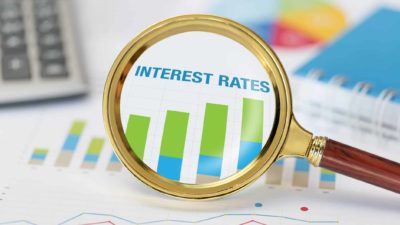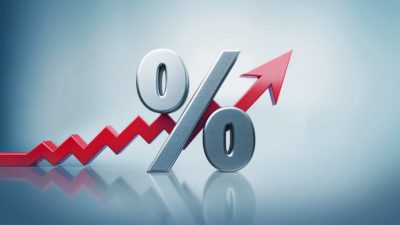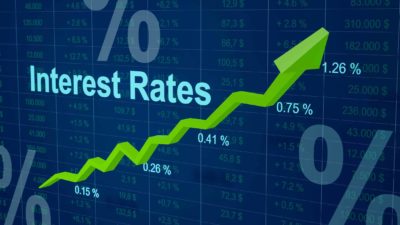Concerned about rising mortgage costs?
You're not alone.
But Commonwealth Bank of Australia (ASX: CBA) CEO Matt Comyn has some calming words for homeowners and investors worried about fast-rising interest rates following the Reserve Bank of Australia's hike in the official cash rate last week.
The cash rate went from a historic 0.10% to the current 0.35%, the first increase in more than a decade,
The bond market is forecasting the RBA will ratchet up the cash rate to 2.50% by December with the rate hitting 3.00% next year. That would see monthly mortgage payments increase to levels that will squeeze many household budgets.
But Comyn says CBA's own forecast is for a significantly smaller increase in the cash rate, believing that inflation levels are about to peak.
What is CBA forecasting for rates?
As the Australian Financial Review reports, CBA's own interest rate forecasts are far more modest. The bank predicts the cash rate will reach 1.35% by December and level out around 1.60% in mid-2023.
"The speculation about a cash rate the market is pricing in is, in our view, much higher than what is going to unfold," Comyn said.
According to Comyn (quoted by the AFR):
That is a very big difference in terms of interest rate normalisation. Our clear view is the inflation level is probably going to peak shortly, and inflation is a lagging indicator.
Our central view is we won't need as much tightening for monetary policy to manage inflation over course of next 12 to 18 months as the market is pricing in. We think, say, four cash rate hikes over the course of the next six months will have a slowing effect and do their job to actually cool demand in the domestic economy.
If CBA has this one right, overstretched homeowners and property investors can breathe a little easier.
How has the big bank been tracking?
CBA released its third-quarter results yesterday, reporting a cash profit of $2.4 billion, flat when compared to the first half quarterly average.
Still, the healthy profit helped CBA shares close up 0.6% yesterday even as the S&P/ASX 200 Index (ASX: XJO) closed 1.7% lower.









